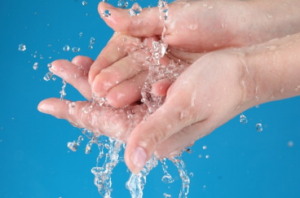By Andrew Atkinson
 We’re all told to look after our health – to exercise for 30 minutes a day, to eat the right foods, to look out for signs and symptoms that should lead us to book an appointment with our GP. But how much are we warned about our hygiene, beyond occasionally restroom signs that tell us to wash our hands after we’ve used the toilet?
We’re all told to look after our health – to exercise for 30 minutes a day, to eat the right foods, to look out for signs and symptoms that should lead us to book an appointment with our GP. But how much are we warned about our hygiene, beyond occasionally restroom signs that tell us to wash our hands after we’ve used the toilet?
Why Hygiene is Important
Hygiene and health are intrinsically linked. If you don’t wash your hands often, then you could make yourself ill. You also might pass illnesses on to other people. Bear in mind that every surface you touch is going to be covered in germs and bacteria, and that you spread those germs around as you go about your day.
Most people don’t wash their hands for as long as they should. As a guide, you should be thoroughly washing your hand for a full two renditions of the ‘Happy Birthday’ song, after putting soap on your hands. After this, you then need to rinse the soap off. It’s important to make sure that your entire hands are washed, so don’t just dip the tips of your fingers into the water.
You should wash your hands when preparing food, before eating, when you’ve cut your skin (or you’re caring for someone that has), when you’ve used the toilet, when you’ve coughed or sneeze, when you’ve touched an animal or when you’ve touched the bin. You might also need to wash your hands frequently when dealing with young children – feeding, changing nappies, wiping up dribble and baby sick. If you don’t have access to soap and water, a hand sanitiser is a good alternative until you can get to a sink.
Remember All Aspects of Hygiene
Washing your hands isn’t the only way to stay clean and hygienic. Good hygiene also covers looking after your teeth, because the long-term effects of bad dental hygiene can include gum disease, cavities and lost teeth.
You don’t just need to clean your body. You also need to make sure that your home is clean and hygienic – don’t let dust build up, make sure that you check regularly for mould and clean all surfaces (particularly food preparation surfaces) regularly.
Also bear in mind that the things that you wear will have an impact on your overall hygiene. Your clothes can harbour germs and need to be regularly and thoroughly washed, whilst items such as jewellery can also be unhygienic. Medical professionals aren’t allowed to wear jewellery below the elbow, because their watches and rings wouldn’t be completely clean and hygienic whilst they were dealing with patients. If you’re wearing jewellery and accessories, remember that these should also be kept as clean as possible.
Looking After Other People
 Bad hygiene will affect your own physical and mental health, and your self-confidence, but will also have an impact on those around you. You can make other people ill, and that illness can then spread further.
Bad hygiene will affect your own physical and mental health, and your self-confidence, but will also have an impact on those around you. You can make other people ill, and that illness can then spread further.
You can look after your health by visiting the gym and eating the right foods, but not looking after your hygiene affects both you and those around you.
– Written by guest author Andrew Atkinson, representing Ecuva, an online retailer stocking health, fitness and daily living aids, helping people to stay active and to live well, looking after themselves in any situation.
